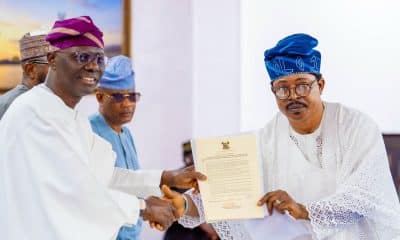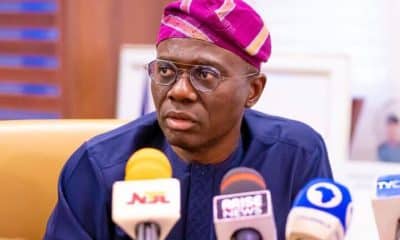Nigeria News
Sanwo-Olu Signs Lagos Electricity Bill Into Law

The Governor of Lagos State, Babajide Sanwo-Olu, formally signed the Lagos Electricity Bill into law on Tuesday.
Naija News reports that the signing ceremony took place at Lagos House in Alausa, Ikeja, and was attended by the state’s deputy governor, Kadri Hamzat, members of the State Assembly, and members of the state executive council.
Governor Sanwo-Olu praised the state House of Assembly for its prompt approval of the bill, emphasizing that it will significantly enhance the socio-economic conditions of the residents of Lagos State.
He noted that the electricity bill has been under development for several years, and its enactment assures Lagosians of a reliable power supply.
Additionally, the state Commissioner for Energy and Mineral Resources, Biodun Ogunleye, remarked that the newly signed electricity law will establish an additional power grid for Lagos State and effectively eliminate power outages in the region.
“There will now be regular power supply. Host community development Trust fund, which will provide opportunities for communities to develop power plant,” he said.
Ogunleye emphasized that the government’s recent initiative serves as a significant milestone, promising a consistent power supply for Lagos State.
The Lagos State Electricity Law 2024 represents a thorough strategy by Governor Sanwo-Olu aimed at tackling persistent issues within the energy sector.
This legislation is designed to create a solid framework for economic advancement, promoting industrial development, enhancing quality of life, ensuring energy equity, driving economic success, and supporting environmental sustainability.
Key objectives of the law include the establishment of a well-structured Lagos Electricity Market that is both technically proficient and financially sustainable while guaranteeing all citizens access to affordable, reliable, and sustainable electricity.
Additionally, it aims to diversify energy sources, including the promotion of renewable energy, enhance energy efficiency, stimulate investment, encourage competition and innovation within the electricity sector, and extend electrification to underserved regions, thereby contributing to the sustainable progress of Lagos State.












